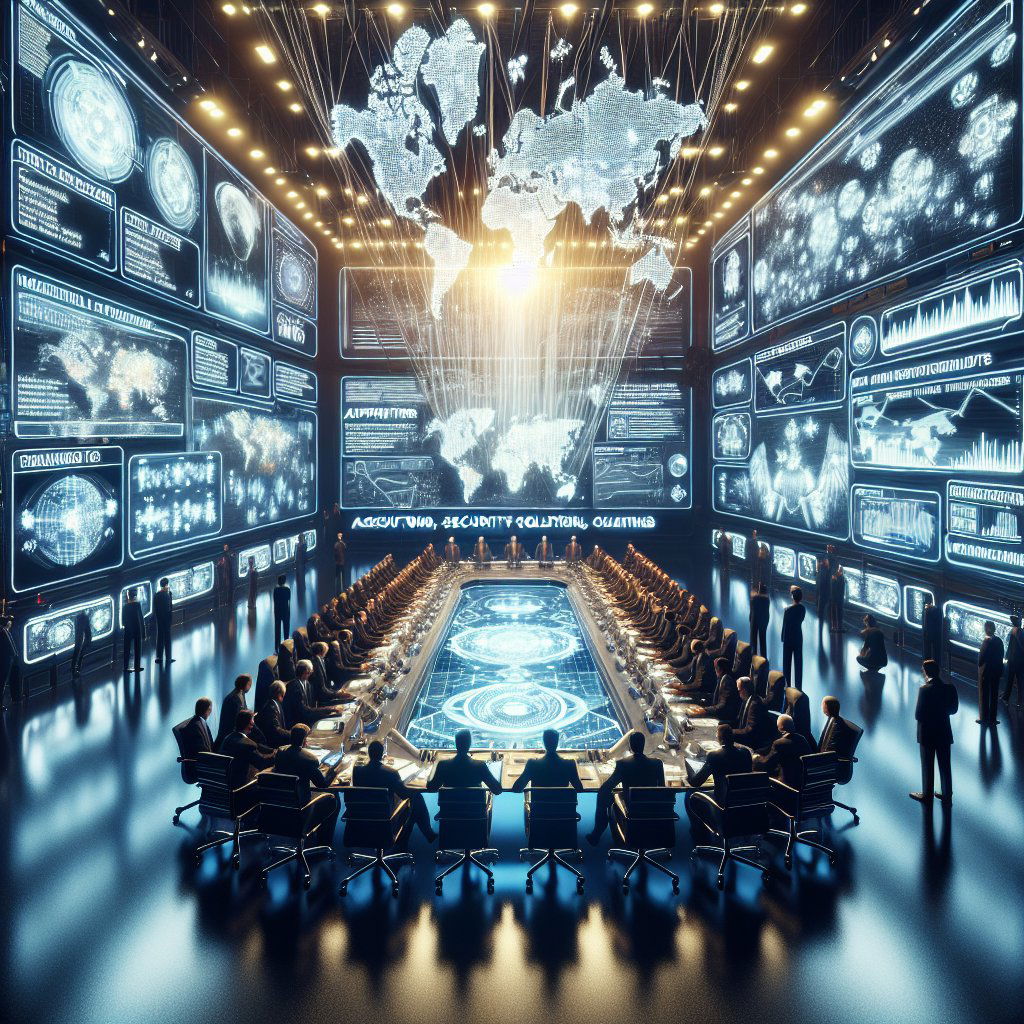Image created by AI
NATO Accuses China as an Enabler in Russia-Ukraine Conflict, Beijing Denounces Claims
Tensions escalate as the North Atlantic Treaty Organization (NATO) accuses China of significantly enabling Russia's military aggression in Ukraine. At a summit in Washington, DC, NATO leaders united to reinforce Ukraine's defenses and cast China into the spotlight for its strategic ties with Russia. Beijing's response, communicated through a spokesperson for its mission to the European Union, was a stark rebuttal to NATO's provocations and allegations, urging the Western military alliance to contribute to global peace instead of stoking divisions.
China's refusal to denounce Moscow's military actions coupled with booming trade between the two nations post-conflict onset have led NATO to express "profound concern" over the strengthening Beijing-Moscow bond. The alliance's 32 members contend that China's support to Russia exacerbates the threat to Euro-Atlantic security. NATO has called on China to halt all forms of assistance to Russia's wartime operations, warning of repercussions on Beijing's international interests and reputation.
Adding to these sentiments, NATO Secretary-General Jens Stoltenberg highlighted China's alleged assistance in providing microelectronics and tools vital for Russia's weapons manufacturing. This marked the first time all NATO allies concurred on the matter in a documented agreement.
Beijing dismissed the claims, with the spokesperson emphasizing China's call for peace negotiations and political resolutions, recalling a 12-point plan proposed by China over a year ago for diplomatically ending the war. Despite the plan's lukewarm reception from both Russian and Ukrainian sides at the time, China maintains its stance as a promoter of peace.
The controversy extends to NATO member countries recognizing the "systemic challenges" posed by China to Euro-Atlantic security. They cite concerns over China's sophisticated nuclear expansion, its online and hybrid activities, including disinformation campaigns, and advancements in space capabilities. Contrary to the perception of a direct threat, NATO primarily views China as a competitive challenge that extends beyond military might into political, economic, technological, and infrastructural spheres across Europe.
At the NATO summit, leaders also reinforced their connections with Asia-Pacific allies—Australia, New Zealand, Japan, and South Korea—amidst concerns over China's assertive regional stance. The final declaration emphasized the importance of dialogue with these partners to address wider security challenges across the regions.
NATO has announced four collaborative projects to support Ukraine, improve cyber defense, counteract disinformation, and explore artificial intelligence, collectively enhancing the ability of alliance and partner nations to address common security issues.










